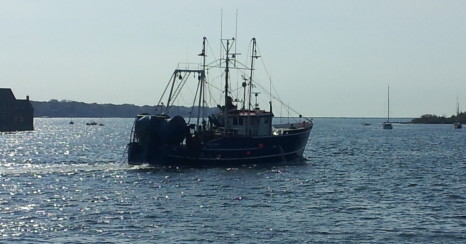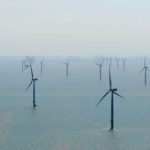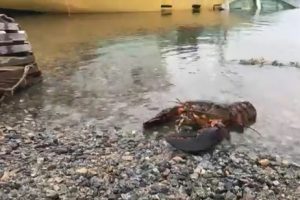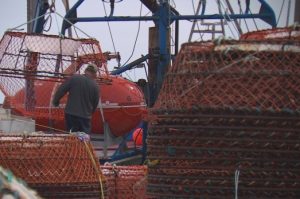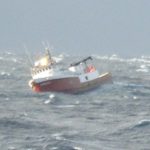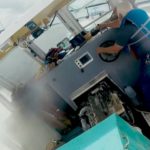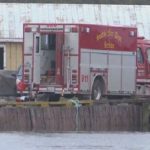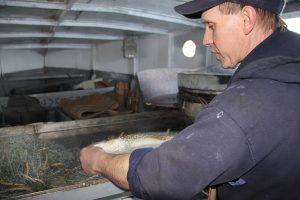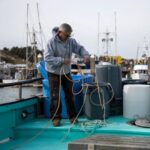Tag Archives: Meghan Lapp

New MA Offshore Wind Farm Could Jeopardize Squid Fishery
Members of the commercial fishing community are worried a proposed utility-scale offshore wind farm in Massachusetts could impact Rhode Island’s lucrative squid industry. Massachusetts recently selected a project bid from Vineyard Wind to construct and deploy 100 turbines about 15 miles off the coast of Martha’s Vineyard in a federal wind energy area. However, Meghan Lapp, spokeswoman for a Rhode Island-based commercial fishing company called Seafreeze Ltd., said the project, which requires underwater cables to connect the project to the regional electricl grid, was sited directly through and adjacent to squid fishing grounds. >click to read<07:52
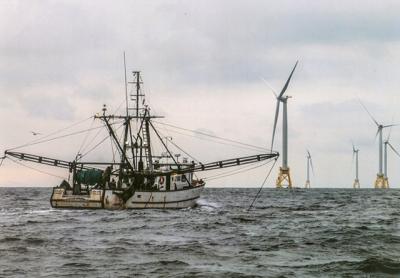
Washington must come to grips with offshore wind conflicts
Offshore wind energy developers have momentum building for them in East Coast waters. But other maritime industries want to ease up on the throttle. The federal Bureau of Ocean Energy Management recently held another round of public meetings in New Jersey and New York, gathering information for what could be a future round of lease offerings in the New York Bight. Secretary of Interior Ryan Zinke has promised to help fast track future permitting. .,,, Commercial fishermen have a case in federal court over the Statoil lease, and litigation seems certain to reignite. “We have the Magnuson Act (federal fisheries law) because we want to have American fishing grounds for American fishermen,” said Meghan Lapp, fisheries liaison for fishing company Seafreeze Ltd., North Kingstown, R.I. “BOEM is plowing ahead regardless. They have not slowed down.” >click to read<22:42
Plans to line the shore of Rhode Island with wind turbines threaten fishermen livelihoods
When Greg Mataronas steams out of Narragansett Bay as early as 3 a.m., he is headed for grounds he knew as an eight-year-old.,, there is a new force threatening Mataronas’ ability to provide for his wife and children: offshore wind energy.,,, “All of our concerns fall on deaf ears,” Lapp said. “I personally have been meeting with BOEM for three years.” Lapp added that she gave “confidential business information” from over 20 fishing vessels to BOEM to demonstrate that there was heavy fishing activity on one particular lease site, but she said BOEM issued the lease regardless. >click to read<10:29
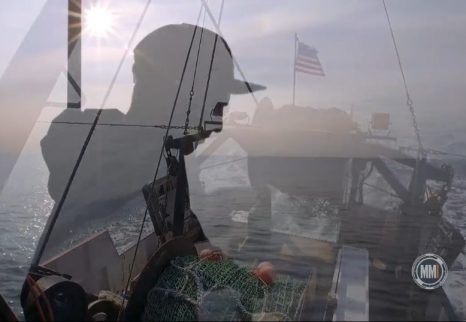
Support local seafood before it’s too late
“Fishermen are the farmers of sea,” (March 17), states fisheries liaison Meghan Lapp in the documentary “Fishing Wars: Drowning in Regulation.” Oppressive federal regulations, inaccurate science and low quotas are crushing commercial fishing in Stonington and other communities. Fish stocks are at healthy levels, yet 90 percent of seafood consumed in the U.S. is imported. And 97 percent of those imports are not inspected by the FDA. Are you worried yet? I am. >click to read< 08:18
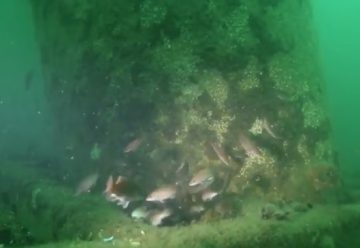
Pushing Propaganda: Underwater video shows marine life growing at wind farm
Offshore wind proponents are touting new undersea footage that suggests a vibrant marine habitat is growing around the nation’s first offshore wind farm — a five-turbine operation off Rhode Island’s waters.,, The brief underwater footage is juxtaposed with longer testimonials from local recreational fishermen and charter boat owners who say the wind farm has been a boon for them since Deepwater Wind opened it more than a year ago. But commercial fishermen are notably absent from the video and it doesn’t acknowledge the experiences of Rhode Island fishermen who have had their trawling gear damaged by buried power cables,,, >click to read< >click to watch video<14:00
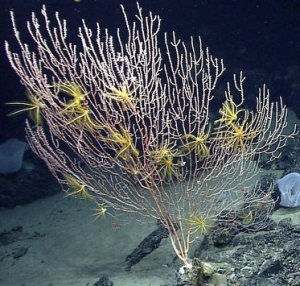
Feds vote to protect more corals in Atlantic Ocean
Federal fishing regulators on Tuesday approved a compromise they said would expand the amount of coral habitat preserved in the Atlantic Ocean while also protecting fishing interests. The New England Fishery Management Council voted on coral protections in an area south of Georges Bank, which is one of the most important commercial fishing areas in the Northeast. The decision came about seven months after the council approved protections in another key New England fishing area, the Gulf of Maine, in June. >click here to read< 17:50 

Scare-mongering Big Brother on America’s fishing boats hurts those who know the industry best
The plague on the commercial fishing industry isn’t “overfishing,” as environmental extremists and government officials claim. The real threats to Northeastern groundfishermen are self-perpetuating bureaucrats, armed with outdated junk science, who’ve manufactured a crisis that endangers a way of life older than the colonies themselves. Hardworking crews and captains have the deepest stake in responsible fisheries management — it’s their past, present, and future — but federal paper-pushers monitor them ruthlessly like registered sex offenders. >click here to read<09:47
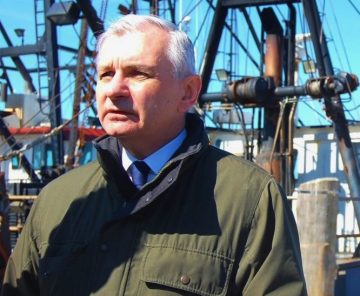
RI Delegation Commends Mid on Squid, introduce legislation in House and Senate – The Rhode Island Fishermen’s Fairness Act
After the Mid-Atlantic Fishery Management Council (MAFMC) recently voted 16-4 against a proposed squid buffer zone framework off the coast of Nantucket, Massachusetts that would have negatively impacted Rhode Island fishermen, U.S. Senators Jack Reed and Sheldon Whitehouse and Congressmen Jim Langevin and David Cicilline commended the council. And this week Reed introduced legislation in the U.S. Senate and Langevin introduced identical legislation in U.S. House of Representatives to give Rhode Island a seat at the council table going forward so that the state and local fishermen have a direct say over matters that impact them. The Rhode Island Fishermen’s Fairness Act, which is cosponsored by Whitehouse and Cicilline, would add Rhode Island to the list of seven states with voting representation on the MAFMC, click here to read press release 19:42
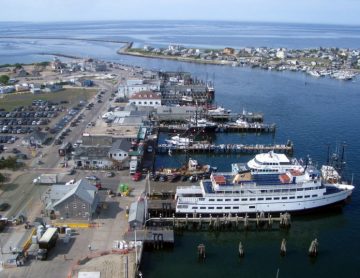
Vote against fishing restrictions seen as win for RI, Galilee
At its meeting Tuesday, the Mid-Atlantic Fishery Management Council voted 16-4 to discontinue a proposed squid buffer zone framework off the coast of Nantucket, Massachusetts, according to Meghan Lapp, fisheries liaison for Seafreeze Ltd “There were a good number of commercial fishermen, squid fishermen present. There were also a good number of people from Nantucket present. Basically everybody that wanted to speak got a chance to speak, and the council did the right thing,” she said. All members of the Narragansett Town Council had signed a letter Dec. 4 requesting the Mid-Atlantic Fishery Management Council “reject further discussion of a buffer zone for the summer squid fishery off Nantucket.” click here to read the story 15:46
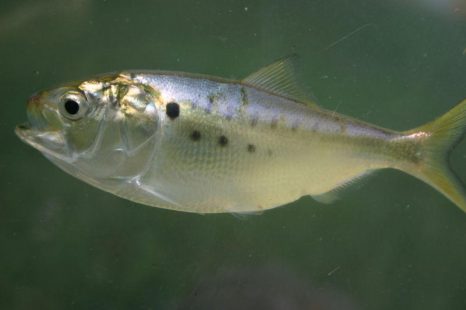
Environmentalists Are Wrong About Menhaden Fishery
Fishing companies are at odds with Rhode Island environmental advocacy groups over proposed changes for the menhaden fishing industry, Changes to the Interstate Fishery Management Plan for Atlantic Menhaden are up for a vote at the Atlantic States Marine Fisheries Commission meeting in Maryland this Monday and Tuesday. Meghan Lapp, fishery liaison for the Rhode Island-based Seafreeze Ltd, said that temporary plan shouldn’t be implemented because it’s based off of science that isn’t applicable to menhaden. click here to read the story 12:19
RNC SUPPORTS THE NORTHEAST COMMERCIAL FISHING INDUSTRY
 RI National Committeewoman Lee Ann Sennick sponsored a Resolution Supporting the Northeast Commercial Fishing Industry at the recent Summer Meeting of the Republican National Committee. Receiving widespread support, the resolution (full text of which can be seen (click here) was passed unanimously by the 168 person body. Sennick, who has professional ties to the industry, has formed a Republican Fisheries Coalition along with Richard Fuka, President of the RI Fisherman’s Alliance and Meghan Lapp, political liaison for Seafreeze Ltd. “Rich and Meghan reached out to the RI Republican Party because they have serious concerns for the future of the industry and the economic impact on our state. Those concerns have not been satisfactorily addressed by RI’s Democrat Congressional Delegation,” stated Sennick. click here to read the press release 07:10
RI National Committeewoman Lee Ann Sennick sponsored a Resolution Supporting the Northeast Commercial Fishing Industry at the recent Summer Meeting of the Republican National Committee. Receiving widespread support, the resolution (full text of which can be seen (click here) was passed unanimously by the 168 person body. Sennick, who has professional ties to the industry, has formed a Republican Fisheries Coalition along with Richard Fuka, President of the RI Fisherman’s Alliance and Meghan Lapp, political liaison for Seafreeze Ltd. “Rich and Meghan reached out to the RI Republican Party because they have serious concerns for the future of the industry and the economic impact on our state. Those concerns have not been satisfactorily addressed by RI’s Democrat Congressional Delegation,” stated Sennick. click here to read the press release 07:10
Trade groups want 10-year requirement removed from Magnuson-Stevens Act
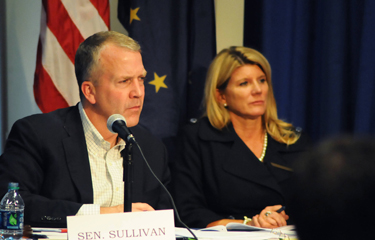 As Congress gets ready to address reauthorizing the Magnuson-Stevens Act, representatives from commercial fishing interests are urging lawmakers to revisit some of the current law’s regulations they feel have hindered the industry. In particular, they’re urging officials to do away with language that caps rebuilding plans for overfished species to 10 years. It’s an arbitrary figure that has too rigidly applied across all federally managed species, said Lori Steele, the executive director of the West Coast Seafood Processors Association, at a hearing Tuesday of the Senate Committee on Commerce, Science and Transportation’s Subcommittee on Oceans, Atmosphere, Fisheries and Coast Guard. click here to read the story 10:50
As Congress gets ready to address reauthorizing the Magnuson-Stevens Act, representatives from commercial fishing interests are urging lawmakers to revisit some of the current law’s regulations they feel have hindered the industry. In particular, they’re urging officials to do away with language that caps rebuilding plans for overfished species to 10 years. It’s an arbitrary figure that has too rigidly applied across all federally managed species, said Lori Steele, the executive director of the West Coast Seafood Processors Association, at a hearing Tuesday of the Senate Committee on Commerce, Science and Transportation’s Subcommittee on Oceans, Atmosphere, Fisheries and Coast Guard. click here to read the story 10:50
The Magnuson Stevens Act and its Ten Year Rebuilding Timeline: Science or Fiction? By Meghan Lapp – click here to read the article
Expert’s talk at LaGrua Thursday to focus on benefits of local sea-to-table options
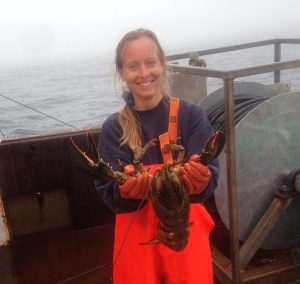 Meghan Lapp, an expert on the commercial fishing industry and its regulations, will give a talk entitled “Sea to Table: Bringing the Bounty of the Sea to You” on Thursday at 7 p.m. at the LaGrua Center at 32 Water St. The Stonington Economic Development Commission is sponsoring the presentation, which will focus on how local harvesters provide fresh seafood, navigate fishery regulations and science, and what species are fresh, local and available. Admission is free. Lapp, of Narragansett, is a fisheries liaison for Seafreeze Ltd., a producer and trader of sea-frozen fish in North Kingstown. She is on the Habitat Advisory Panel and the Herring Advisory Panel for the New England Fishery Management Council, the Ecosystems and Oceans Planning Advisory Panel for the Mid-Atlantic Fishery Management Council and the Menhaden Advisory Panel for the Atlantic States Marine Fisheries Commission.,,, “I heard what was going on with the fishing industry and the regulations and it upset me, and I got politically involved,” she said by phone on July 7. “From there I actually built commercial fishing nets in New Bedford for about four-and-a-half years and I did lobbying for the industry on my own time.” click here to read the story 13:22
Meghan Lapp, an expert on the commercial fishing industry and its regulations, will give a talk entitled “Sea to Table: Bringing the Bounty of the Sea to You” on Thursday at 7 p.m. at the LaGrua Center at 32 Water St. The Stonington Economic Development Commission is sponsoring the presentation, which will focus on how local harvesters provide fresh seafood, navigate fishery regulations and science, and what species are fresh, local and available. Admission is free. Lapp, of Narragansett, is a fisheries liaison for Seafreeze Ltd., a producer and trader of sea-frozen fish in North Kingstown. She is on the Habitat Advisory Panel and the Herring Advisory Panel for the New England Fishery Management Council, the Ecosystems and Oceans Planning Advisory Panel for the Mid-Atlantic Fishery Management Council and the Menhaden Advisory Panel for the Atlantic States Marine Fisheries Commission.,,, “I heard what was going on with the fishing industry and the regulations and it upset me, and I got politically involved,” she said by phone on July 7. “From there I actually built commercial fishing nets in New Bedford for about four-and-a-half years and I did lobbying for the industry on my own time.” click here to read the story 13:22
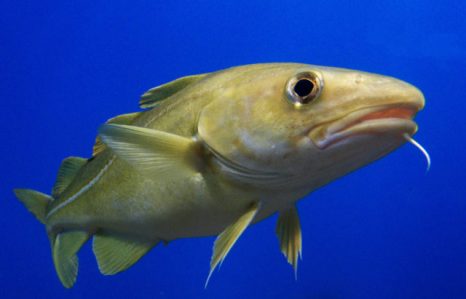
Choppy waters lay ahead for U.S. fisheries – Rebuilding Timeline – Science, or Fiction
Proposed changes to the Magnuson-Stevens Act, our nation’s fishery management law, would compound problems for the nation’s fish, says birder Harrison Tasoff. Fishery management got a significant boost when the act was reauthorized in 2007. The new legislation required the councils to base their strategies and quotas on scientific population surveys. It is crucial that these fish surveys are done by marine biologists. Professional fishermen’s knowledge of fish runs as deep as some of the waters they trawl. But their background prepares them for different kinds of tasks than a marine biologist, whose years of training equip them with the skills to conduct surveys and model ecological phenomena. The 2007 reauthorization also strengthened the timeframe that the agencies have to rebuild depleted fish stocks. Click here to read the article The Magnuson Stevens Act and its Ten Year Rebuilding Timeline: Science or Fiction? by Meghan Lapp One of the initial problems with a mandatory ten year rebuilding timeline is that it creates conflict within the law itself. Taking into account that a defined rebuilding schedule cannot be justified by science, a ten year requirement, or any time specific deadline at all,,, Click here to read the article 13:19
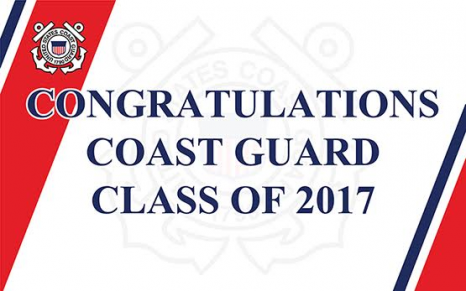
Commercial fishermen plan flotilla for Trump’s graduation speech at Coast Guard Academy
A group of fishermen will greet President Trump and send congratulations to graduating cadets from a flotilla on the Thames River during the United States Coast Guard Academy commencement today. “Our message is ‘make commercial fishing great again’ and it’s a congratulatory effort to say thank you to the Coast Guard class of 2017,” said Joel Hovanesian, of Wakefield, who is a member of the Rhode Island Fishermen’s Alliance. The purpose of the flotilla is also to raise the President’s awareness of regulatory issues in the fishing industry, especially since one of the platforms he ran on was over-regulation and its burdensome effects on small businesses, said Meghan Lapp, fisheries liaison for Seafreeze Ltd., of North Kingstown. “Every single fishing vessel is a small, mobile corporation, so if he’s seeing 15 or 20 boats, he’s seeing 15 or 20 small businesses right there and there’s thousands of them along the East Coast,” she said. “In the fishing industry, we’re dealing with a lot of over regulation and we believe there’s a lot of things that could be done to make the industry thrive again.” click here to read the story 07:28
Video, click here Local fishermen hope President Trump will help commercial fishing industry
We will be getting live updates, and will be posting photo’s on this page, Click here
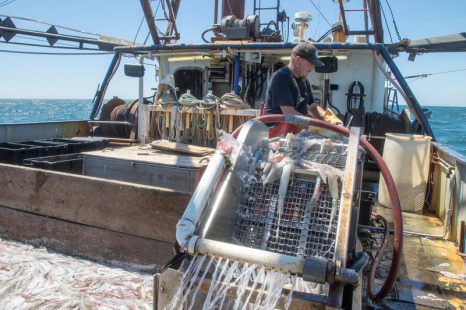
After a record run of squid, local fishermen warily eye competition, regulatory challenges
It was the best single run of longfin squid anyone on the East Coast had ever seen – and it happened fast and was over fast. In two months last summer, June and July, the East Coast-based squid fleet landed approximately 14 million pounds, with Rhode Island landing more than 50 percent of that quota, according to National Oceanic and Atmospheric Administration landing reports. “I’ve never seen anything like it. The squid just kept coming,” said Point Judith fisherman Jeff Wise of Narragansett. “I’ve never seen volume and catch rates that high before.”,,,Three policy issues surfaced in recent months that could affect Rhode Island squid vessels and processors. One concerns managing the number of squid permits allowed, an issue perennially raised by the commercial fishing industry. The other two concern the possible loss of fishing ground – one by proposed wind farms off Long Island, and the other from lobbying pressure for a buffer zone in a key squid area south of Nantucket and Martha’s Vineyard. Big read! Read the article here 07:47
Statoil: Fishermen lobby for new spot for proposed Long Island wind farm
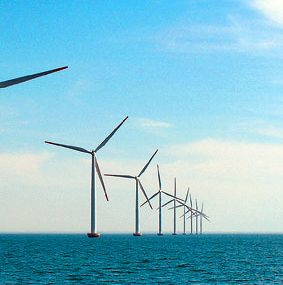 In Joe Gilbert’s view, fishermen like him shouldn’t have to compete with wind farms for a piece of the ocean. “We’re not anti-wind farm,” Gilbert said this past week. “But we don’t want to trade one renewable resource — fish — for another one — wind. They can both exist.” Gilbert is the owner of Empire Fisheries, which has four scallop and squid fishing boats based at the Town Dock. He’s also a member of the board of the Fisheries Survival Fund, one of 12 fishermen groups from New England to New Jersey opposing the federal government’s recent approval of a provisional lease to a Norwegian company that proposes to develop a wind farm on 79,350 acres of ocean bottom about 13 miles south of Jones Beach in Hempstead, Long Island. “What we’re asking is that it be relocated,” said Meghan Lapp, fisheries liaison with Sea Freeze, a squid wholesaler based in North Kingstown, R.I., that has joined the Fisheries Survival Fund in challenging the wind farm plan. The site of the proposed wind farm, fishermen say, is one of the most productive squid and scallop fishing areas in the North Atlantic. But the long trawling nets used by these fisheries could not maneuver within a “pinball machine of structures” that would constitute the wind farm, Lapp said. “It would be too dangerous.” Read the story here 09:01
In Joe Gilbert’s view, fishermen like him shouldn’t have to compete with wind farms for a piece of the ocean. “We’re not anti-wind farm,” Gilbert said this past week. “But we don’t want to trade one renewable resource — fish — for another one — wind. They can both exist.” Gilbert is the owner of Empire Fisheries, which has four scallop and squid fishing boats based at the Town Dock. He’s also a member of the board of the Fisheries Survival Fund, one of 12 fishermen groups from New England to New Jersey opposing the federal government’s recent approval of a provisional lease to a Norwegian company that proposes to develop a wind farm on 79,350 acres of ocean bottom about 13 miles south of Jones Beach in Hempstead, Long Island. “What we’re asking is that it be relocated,” said Meghan Lapp, fisheries liaison with Sea Freeze, a squid wholesaler based in North Kingstown, R.I., that has joined the Fisheries Survival Fund in challenging the wind farm plan. The site of the proposed wind farm, fishermen say, is one of the most productive squid and scallop fishing areas in the North Atlantic. But the long trawling nets used by these fisheries could not maneuver within a “pinball machine of structures” that would constitute the wind farm, Lapp said. “It would be too dangerous.” Read the story here 09:01
R.I. quota for menhaden the focus of debate
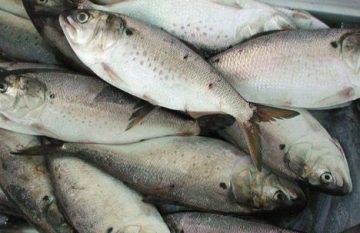 About 30 recreational and commercial fishermen, fish processors, environmental groups (like Save the Bay) and fish managers attended Monday’s public hearing on Atlantic menhaden at the URI Bay Campus held by the Atlantic States Marine Fisheries Commission. The two main issues at the hearing were the use of ecosystem-based management strategies to determine stock status and allowable catch limits, and landing time frames, which would be used to determine allocation of quota. The Atlantic menhaden plan will be the first ASMFC plan that utilizes ecosystem-based management in this fashion. Meghan Lapp of Seafreeze, Ltd., North Kingstown (the largest producer and trader of sea-frozen fish on the East Coast) and a member of the ASMFC Atlantic menhaden Advisory Panel, said “Historically, Rhode Island has landed a lot more fish than the allocation reflects.” Read the column here 16:30
About 30 recreational and commercial fishermen, fish processors, environmental groups (like Save the Bay) and fish managers attended Monday’s public hearing on Atlantic menhaden at the URI Bay Campus held by the Atlantic States Marine Fisheries Commission. The two main issues at the hearing were the use of ecosystem-based management strategies to determine stock status and allowable catch limits, and landing time frames, which would be used to determine allocation of quota. The Atlantic menhaden plan will be the first ASMFC plan that utilizes ecosystem-based management in this fashion. Meghan Lapp of Seafreeze, Ltd., North Kingstown (the largest producer and trader of sea-frozen fish on the East Coast) and a member of the ASMFC Atlantic menhaden Advisory Panel, said “Historically, Rhode Island has landed a lot more fish than the allocation reflects.” Read the column here 16:30
Confusion, rancor, and yes, fear, after LIPA wind farm meeting postponed
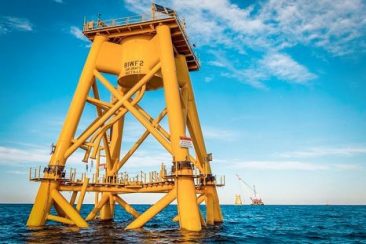 New York State’s decision to postpone LIPA’s consideration of an offshore wind farm that is popular with environmentalists prompted confusion and rancor in its aftermath, as the Cuomo administration works on a wind-energy blueprint that could include other areas directly off Long Island. LIPA trustees had been scheduled to vote last Wednesday on a 90-megawatt wind-farm proposal by developer Deepwater Wind in the federal Rhode Island wind-energy area 30 miles from Montauk Point. But a late-night decision by NYSERDA prompted cancellation of the board meeting, an unprecedented move, and postponement of the vote. The state’s decision to postpone the trustee vote disappointed Long Island environmentalists and at least one East End official, who have expressed frustration for years about LIPA’s on-again, off-again wind ambitions. One group was rumored to have bought Champagne for the board meeting. “It’s awful, pulling a major meeting like this at the last minute,” said Gordian Raacke, executive director of Renewable Energy Long Island and a longtime advocate for solar and wind power. “It causes a lot of uncertainty and it scares people. lol! ok! “Those [potential] wind-energy areas would destroy multiple fisheries,” said Meghan Lapp, fisheries liaison for Seafreeze Ltd., a Rhode Island commercial fishing group. Added Drew Minkiewicz, an attorney for the Fisheries Survival Fund, representing commercial scallopers, “All of them [wind-energy areas] are right smack dab in the middle of scallop grounds.” Now, that’s scary. Read the rest here 15:29
New York State’s decision to postpone LIPA’s consideration of an offshore wind farm that is popular with environmentalists prompted confusion and rancor in its aftermath, as the Cuomo administration works on a wind-energy blueprint that could include other areas directly off Long Island. LIPA trustees had been scheduled to vote last Wednesday on a 90-megawatt wind-farm proposal by developer Deepwater Wind in the federal Rhode Island wind-energy area 30 miles from Montauk Point. But a late-night decision by NYSERDA prompted cancellation of the board meeting, an unprecedented move, and postponement of the vote. The state’s decision to postpone the trustee vote disappointed Long Island environmentalists and at least one East End official, who have expressed frustration for years about LIPA’s on-again, off-again wind ambitions. One group was rumored to have bought Champagne for the board meeting. “It’s awful, pulling a major meeting like this at the last minute,” said Gordian Raacke, executive director of Renewable Energy Long Island and a longtime advocate for solar and wind power. “It causes a lot of uncertainty and it scares people. lol! ok! “Those [potential] wind-energy areas would destroy multiple fisheries,” said Meghan Lapp, fisheries liaison for Seafreeze Ltd., a Rhode Island commercial fishing group. Added Drew Minkiewicz, an attorney for the Fisheries Survival Fund, representing commercial scallopers, “All of them [wind-energy areas] are right smack dab in the middle of scallop grounds.” Now, that’s scary. Read the rest here 15:29
Meghan Lapp: Herring face no danger from fishing
 The July 12 Associated Press article “There’s a herring boom off our coast” unfortunately misled readers about herring stock size and commercial harvest levels. There is not a “catch boom” in New England — far from it. Contrary to the article’s statement that 2014 harvest levels were unusually high, the 2014 fishing mortality rate (which is a comparison of the harvest level to the stock size) was at its lowest level since 1965. That is, commercial harvest rates of herring are at their lowest in a 50-year time period. Read the rest here 14:22
The July 12 Associated Press article “There’s a herring boom off our coast” unfortunately misled readers about herring stock size and commercial harvest levels. There is not a “catch boom” in New England — far from it. Contrary to the article’s statement that 2014 harvest levels were unusually high, the 2014 fishing mortality rate (which is a comparison of the harvest level to the stock size) was at its lowest level since 1965. That is, commercial harvest rates of herring are at their lowest in a 50-year time period. Read the rest here 14:22
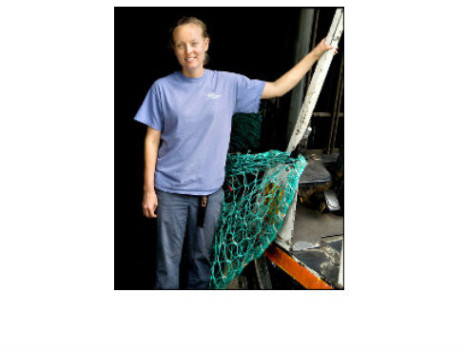
Meghan Lapp’s response to Oceana Gib Brogan’s NY Times Article “A Knockout Blow for Fish Stocks”
Unfortunately for NY Times readers, this article is full of false and misleading information. It has caused quite a stir not based on fact, but based on deliberately inaccurate statements. The article begins with a woeful tale of Atlantic cod. What it does not tell you is that just a few years ago, a 2008 assessment for Gulf of Maine cod showed that the stock was healthy, and would attain desired levels within all specified timeframes. During this time, fishermen stayed within the allowable catch levels, and even below these levels- From Seals, to Closed area’s, and the Observer Program, She lay’s it all out. Read the rest here 16:14






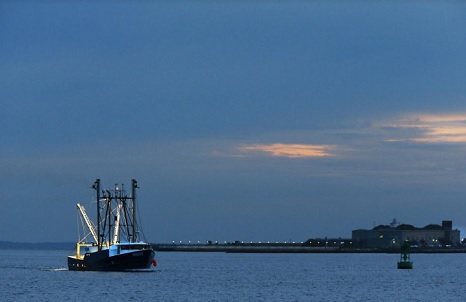
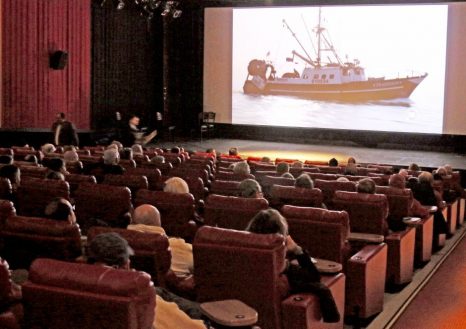
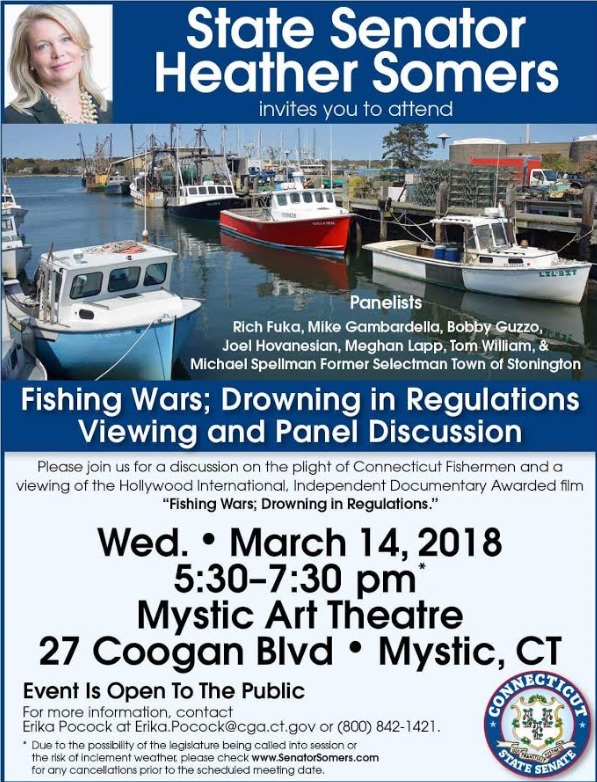

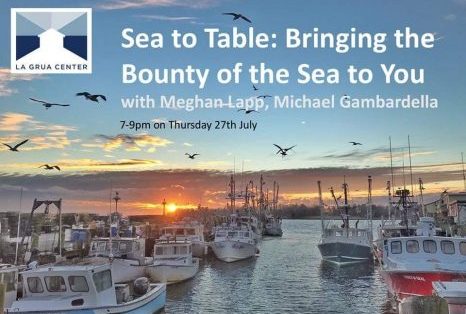
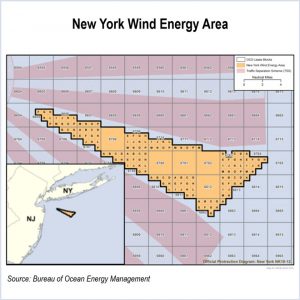 The U.S. District Court for the District of Columbia decided late Wednesday not to grant a preliminary injunction in the lawsuit brought by a host of fishing communities, associations and businesses led by scallop industry trade group the Fisheries Survival Fund against the impending leasing of the New York Wind Energy Area to Statoil Wind of Norway. The suit alleges the U.S. Bureau of Ocean Energy Management (BOEM) leasing process did not adequately consider the impact of wind power development in the waters off Long Island, New York on the region’s fishermen. The fishing industry asked that the court temporarily halt BOEM from proceeding with the final ratification of a lease on the area, which was preliminarily awarded to Statoil, Norway’s state oil company, for $42.5 million. “Getting a preliminary injunction granted is difficult, given the high standards that the court applies,” said Mayor Kirk Larson of Barnegat Light, N.J., one of the plaintiffs in the case. “But our case will continue, and we are confident that we will succeed on the merits.”
The U.S. District Court for the District of Columbia decided late Wednesday not to grant a preliminary injunction in the lawsuit brought by a host of fishing communities, associations and businesses led by scallop industry trade group the Fisheries Survival Fund against the impending leasing of the New York Wind Energy Area to Statoil Wind of Norway. The suit alleges the U.S. Bureau of Ocean Energy Management (BOEM) leasing process did not adequately consider the impact of wind power development in the waters off Long Island, New York on the region’s fishermen. The fishing industry asked that the court temporarily halt BOEM from proceeding with the final ratification of a lease on the area, which was preliminarily awarded to Statoil, Norway’s state oil company, for $42.5 million. “Getting a preliminary injunction granted is difficult, given the high standards that the court applies,” said Mayor Kirk Larson of Barnegat Light, N.J., one of the plaintiffs in the case. “But our case will continue, and we are confident that we will succeed on the merits.”